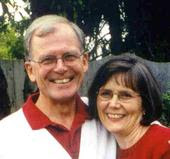Some of you might find this little bit of history behind Dr. Richard Béliveau interesting. This quote is from Dr. David Servan-Schreiber's book, Anticancer: A New Way of Life.
Richard Béliveau, PhD, a researcher in biochemistry and professor at the University of Montreal, runs one of the largest laboratories for molecular medicine in the world specializing in cancer biology. Over the past twenty years, he has worked with major pharmaceutical groups such as AstraZeneca, Novartis, Sandoz, Wyeth, and Merck to identify the mechanisms that make anticancer medicines work. The goal in understanding these mechanisms is to develop new medications with fewer side effects. Béliveau and his team focused on biochemical questions lightyears away from the daily concerns of those who suffer from the disease. One day his laboratory moved to new premises, within the children's hospital of the University of Montreal. There, everything changed.
His new neighbor, the head of the Department of I Hemooncology, asked him to look for complementary approaches capable of reducing the toxicity and improving the efficacy of chemotherapy and radiotherapy. "1 am open to anything you can find to help us care for our children," he told Béliveau. "Anything that can be combined with existing treatments. Even if it were to involve diet."
Diet? The concept was foreign to the medical pharmacology that Béliveau had practiced for twenty years. But since his move, every day on his way to his laboratory he walked through the department caring for children with leukemia. Parents often stopped him in the corridor and asked, "Is there something else we can do for our daughter? Something new that could be tried? We're ready to do anything for our child." The hardest part was being stopped by the children themselves with the same questions. He was profoundly shaken, and his mind was in turmoil. In the middle of the night he would get up with a new idea. Once he was more fully awake, he would realize it wasn't worth very much. The next day he would go back to combing through the scientific literature in search of a trail to follow. This is how he came across a revolutionary article one day, published in the prestigious journal Nature.
For some years, the entire pharmaceutical industry had been searching for new, synthetic molecules capable of blocking the development of the new blood vessels that tumors need to grow (angiogenesis). In this article,Yihai Cao, PhD, and Renhai Cao, PhD, two researchers at the Karo Linska Institute in Stockholm, demonstrated for the first time that food as ordinary as tea (after water, the most widely consumed beverage in the world) was capableof blocking angiogenesis, using the same mechanisms as existing medications. Two or three cups of green tea a day were enough. [Abstract at Nature] [full pdf copy at FASEBJ Journal]
The he idea seemed brilliant to him. It meant searching in the realm of nutrition, of course! All the data in epidemiology actually confirmed it. The principal difference between populations with the highest cancer rates and those with the lowest was their food. When Asians developed breast or prostate cancer, their tumors were usually much less aggressive than a Westerner's. In fact, wherever green tea was drunk abundantly there was a lower incidence of cancer. For the first time, Béliveau wondered whether chemical molecules contained in certain foods were powerful anticancer agents. On top of that, with more than five thousand years of human experimentation, these foods would have already proven that they were harmless. He had finally hit on something that could be offered to children without exposing them to the slightest risk: anticancer foods or, as Béliveau liked to call them, nutraceuticals.
In the laboratory of molecular medicine at the Sainte-justine Children's Hospital in Montreal was one of the best equipped to analyze the effects of various molecules on cancer cell growth and on the angiogenesis of blood vessels needed to feed them. If Béliveau now decided to turn over his team of fifty researchers and twenty million dollars' worth of equipment to the search for anticancer foods, substantial progress could rapidly be made. But it was a risky decision. Given that there were no possible patents from foods, and therefore no real financial payoff, who would pay for all the research? Without more tangible proof of the validity of this approach, it didn’t seem economically reasonable to pursue such a venture. It was life itself that led Béliveau to take the leap that no other laboratory in the world had yet risked.
[Anticancer; A New Way of Life by Dr. David Servan-Schreiber, MD, PhD, p.96-98]
Subscribe to:
Post Comments (Atom)





No comments:
Post a Comment